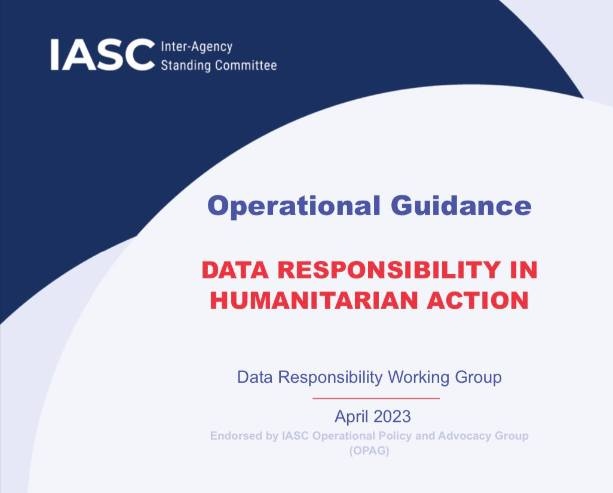Share
On 1 May, the Inter-Agency Standing Committee (IASC) released the second edition of its Operational Guidance on Data Responsibility in Humanitarian Action which offers principles and recommended actions to ensure the safe, ethical and effective management of personal and non-personal data at all levels of the humanitarian system. Since it was first endorsed in February 2021, the Operational Guidance has been used by OCHA and partners to improve the handling of data in at least 20 response contexts ranging from Afghanistan to Ukraine.
The revised IASC Guidance is the result of a 9-month process led by the Data Responsibility Working Group, a global coordination body co-chaired by the Danish Refugee Council, IOM, UNHCR and OCHA’s Centre for Humanitarian Data. The revision process consisted of a literature review of relevant policies, guidance, and frameworks; a global survey, which received responses from 125 humanitarian practitioners from over 50 countries; and an open feedback period through which 100 colleagues from 25 different organizations provided input on the draft revision.
The major changes in the revised Guidance include: the addition of lessons learned from the first two years of implementation; updates to the principles and recommended actions to reflect new frameworks of relevance and make them more operationally relevant; and additional tools and simplified templates to support adoption.
The implementation of data responsibility in practice is often inconsistent within and across humanitarian response contexts. This is true despite established principles, norms and professional standards regarding respect for the rights of affected populations, the range of resources on data responsibility available in the wider international data community, as well as significant efforts by many humanitarian organizations to develop and update their policies and guidance in this area. While each organization is responsible for its own data management, humanitarians need common guidance to inform individual and collective action, and to uphold a high standard for data responsibility in all response contexts and in all phases of humanitarian action. The IASC Guidance responds to this need.
For more on data responsibility in humanitarian action, visit the Data Responsibility page on the Centre’s website or contact our team at centrehumdata@un.org. If you are interested in joining the DRWG on behalf of your organization, please complete this form.
Note: The first edition of the IASC Operational Guidance is available here, including translated versions in French and Spanish. The DRWG will prepare translations of the revised Guidance later this year.
